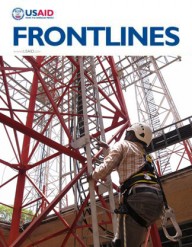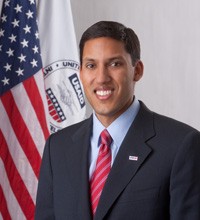Wherever I travel, I see how access to energy transforms the potential of nations and creates opportunity for millions. Electricity is the driving force behind a stable, inclusive and thriving economy. Around the world, it allows businesses to flourish, clinics to store vaccines, and students to study long after dark.
In Pakistan, for instance, chronic shortages of electricity stifle broad-based economic growth. Today, we are supporting electricity generation to narrow Pakistan’s energy deficit, helping ensure that all facilities—from schools to clinics—have the power they need. Since October 2009, we have funded power generation, distribution and transmission infrastructure projects to add 1,200 megawatts to Pakistan’s national grid—enough to provide electricity to 18 million Pakistanis. These results are only possible because of critical policy and governance reforms that are tied to our investments.
In Africa, more than 600 million people do not have access to energy, which stifles the growth of economies and the hopes of citizens young and old. Decades of archaic regulations, corruption and poor governance have hindered investments in Africa’s energy infrastructure. Over the last several years, we have seen tremendous progress, including Nigeria’s historic hand-over of power companies to the private sector. Still, firms and banks have continued to stay away in many countries, uncertain whether they can ever recoup their investments.
Last June, President Barack Obama announced an initiative called Power Africa that would help bring energy projects to six countries that have embraced reform. Through partnerships with multinational companies and local entrepreneurs, Power Africa aims to double access to power on the continent, helping light tens of millions of homes and businesses in the markets of the future.
In Tanzania, the new presidential initiative is helping build the nation’s first small hydropower facility, which draws on new technology to harness the natural flow of rivers. In a nation where only 18 percent of the population has access to electricity, this partnership will bring energy to thousands of farmers in Tanzania’s most fertile region. In Ethiopia, Power Africa is helping build the largest geothermal plant on the continent. The agreement will not only produce enough power to reach thousands of people, but provides a signal to investors that the Ethiopian energy sector—long dominated by the government—is opening up for business.
We are building a model of public-private partnership that can carve viable pathways for energy innovations to brighten the future for hundreds of millions who live without electricity and everything it enables. Through our collaboration with local communities and private sector partners, we can continue to support infrastructure projects to bring electricity—and all of the opportunities that come with it—to the rest of the developing world.











Comment
Make a general inquiry or suggest an improvement.